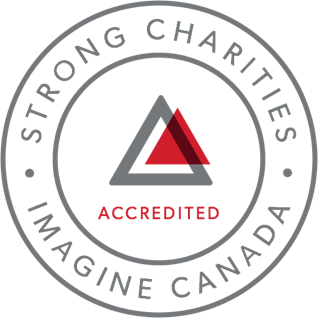Ethics is the cornerstone of fundraising. Without it, the public simply wouldn’t give to charities, and the sector’s programs and services could never be provided. Ethics is the way charities demonstrate their commitment to accountability and transparency, and show the public they are worthy of its trust and confidence.
Ethics was the main reason that the Association of Fundraising Professionals (AFP), the world’s largest community of fundraisers, was created in 1960. The association’s original code of ethics contained four standards (there are now 25) related to professionalism, donor intent, and percentage-based compensation and commissions.
With the public giving more than $10 billion to charities annually, according to Statistics Canada, and millions of Canadians volunteering for countless causes, it would seem that charities have done a good job of building trust and confidence. But if you dig a little deeper, the picture is a bit more cloudy.
On one hand, confidence in the charitable sector is relatively high, with nearly eight in ten Canadians saying they’re confident in the country’s charities and nonprofit organizations, according to AFP’s What Canadian Donors Want survey. Three in four agree that charities play an important role in addressing the needs not being met by the government, public sector, and private sector.
On the other hand, only 61% agree that Canadian charities are trustworthy. Similarly, just 63% agree that most charities act responsibly with the donations they receive. When it comes to what charities say about how much they spend on overhead costs like fundraising, supplies, and administration versus the amount they spend on their cause or programs, Canadians are more divided. A growing majority (58%) still trust charities, but about a third are less trusting, and some think that charities overstate how much they spend on the cause or programs (24%), or that charities are being intentionally misleading (10%).
It’s clear that the public is concerned. So how do charities and fundraisers combat this? How do we educate the public about the countless measures and safeguards that we have in place to protect their privacy and interests?
In an era of increasing donor involvement and charity accountability, people want to know what charities are doing to protect their interests, whether it’s through enhanced security to safeguard online transactions or internal policies to ensure that contributions are used in the manner they were intended.
The public needs to realize that charity decisions aren’t made in a vacuum, and that there is a commonly agreed-upon list of standards and checkpoints that charities follow. Many of these are encompassed in AFP’s Code of Ethical Principles & Standards, as well as The Donor Bill of Rights, which lists the expectations that donors should have when they make a charitable gift.
Consider the “rights” that donors have when they make a charitable gift:
- To be informed of the organization's mission, of the way the organization intends to use donated resources, and of its capacity to use donations effectively for their intended purposes.
- To be informed of the identity of those serving on the organization's governing board, and to expect the board to exercise prudent judgment in its stewardship responsibilities.
- To have access to the organization's most recent financial statements.
- To be assured their gifts will be used for the purposes for which they were given.
- To receive appropriate acknowledgement and recognition.
- To be assured that information about their donation is handled with respect and with confidentiality to the extent provided by law.
- To expect that all relationships with individuals representing organizations of interest to the donor will be professional in nature.
- To be informed whether those seeking donations are volunteers, employees of the organization or hired solicitors.
- To have the opportunity for their names to be deleted from mailing lists that an organization may intend to share.
- To feel free to ask questions when making a donation and to receive prompt, truthful and forthright answers.
Most donors are probably not even aware of what they should expect when they give to a charity. Imagine how empowered they’ll feel when you explain to them the rights they have. Imagine how positively they’ll feel about your organization when they make their next giving decision.
Ethics makes everything charities do – the programs, the services, the millions of people helped everyday – possible. So, ensure that your organization is living up to the highest ethical standards possible, and make a point to talk to your donors about what you are doing to earn their trust and confidence.
October is Ethics Awareness Month, and AFP has resources and more for charities and nonprofits on their website.
Guest contributions represent the personal opinions and insights of the authors and may not reflect the views or opinions of Imagine Canada.
Michael Nilsen serves as Vice President, Marketing, Communications & Public Policy for the Association of Fundraising Professionals (AFP), which works to advance ethical and effective fundraising and represents more than 28,000 charities and charitable fundraisers around the world. He oversees Ethics Awareness Month, which is celebrated throughout the month of October.




